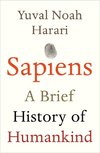
-
 Anglický jazyk
Anglický jazyk
Holy Roman Emperors
Autor: Source: Wikipedia
Source: Wikipedia. Pages: 138. Chapters: Charlemagne, Charles V, Holy Roman Emperor, Louis the Pious, Frederick I, Holy Roman Emperor, Frederick II, Holy Roman Emperor, Charles the Bald, Maximilian I, Holy Roman Emperor, Arnulf of Carinthia, Otto III, Holy... Viac o knihe
Na objednávku
29.07 €
bežná cena: 32.30 €
O knihe
Source: Wikipedia. Pages: 138. Chapters: Charlemagne, Charles V, Holy Roman Emperor, Louis the Pious, Frederick I, Holy Roman Emperor, Frederick II, Holy Roman Emperor, Charles the Bald, Maximilian I, Holy Roman Emperor, Arnulf of Carinthia, Otto III, Holy Roman Emperor, Conrad II, Holy Roman Emperor, House of Hohenstaufen, Francis II, Holy Roman Emperor, Otto II, Holy Roman Emperor, Frederick III, Holy Roman Emperor, Sigismund, Holy Roman Emperor, Charles IV, Holy Roman Emperor, Maximilian II, Holy Roman Emperor, Louis IV, Holy Roman Emperor, Charles VII, Holy Roman Emperor, Lothair III, Holy Roman Emperor, Otto IV, Holy Roman Emperor, Rudolf II, Holy Roman Emperor, Leopold I, Holy Roman Emperor, Francis I, Holy Roman Emperor, Ferdinand I, Holy Roman Emperor, Joseph I, Holy Roman Emperor, Joseph II, Holy Roman Emperor, Leopold II, Holy Roman Emperor, Charles VI, Holy Roman Emperor, Ferdinand II, Holy Roman Emperor, Matthias, Holy Roman Emperor, Ferdinand III, Holy Roman Emperor, Kaiser, Henry III, Holy Roman Emperor, Henry VII, Holy Roman Emperor, Henry IV, Holy Roman Emperor, Otto I, Holy Roman Emperor, Charles the Fat, Berengar I of Italy, Henry V, Holy Roman Emperor, King of the Romans, Louis the Blind, Henry II, Holy Roman Emperor, Henry VI, Holy Roman Emperor, Descendants of Isabella I of Castile and Ferdinand II of Aragon, Guy III of Spoleto, Lambert II of Spoleto, Louis II of Italy, House of Luxembourg. Excerpt: Charlemagne ( ; French pronunciation: ; German: , Latin: , meaning Charles the Great; possibly 742 - 28 January 814) was King of the Franks from 768 and Emperor of the Romans (Imperator Romanorum) from 800 to his death in 814. He expanded the Frankish kingdom into an empire that incorporated much of Western and Central Europe. During his reign, he conquered Italy and was crowned by Pope Leo III on 25 December 800. This temporarily made him a rival of the Byzantine Emperor in Constantinople. His rule is also associated with the Carolingian Renaissance, a revival of art, religion, and culture through the medium of the Catholic Church. Through his foreign conquests and internal reforms, Charlemagne helped define both Western Europe and the Middle Ages. He is numbered as Charles I in the regnal lists of Germany, the Holy Roman Empire, and France. The son of King Pepin the Short and Bertrada of Laon, a Frankish queen, he succeeded his father in 768 and co-ruled with his brother Carloman I. The latter got on badly with Charlemagne, but war was prevented by the sudden death of Carloman in 771. Charlemagne continued the policy of his father towards the papacy and became its protector, removing the Lombards from power in Italy, and leading an incursion into Muslim Spain, to which he was invited by the Muslim governor of Barcelona. Charlemagne was promised several Iberian cities in return for giving military aid to the governor; however, the deal was withdrawn. Subsequently, Charlemagne's retreating army experienced its worst defeat at the hands of the Basques, at the Battle of Roncesvalles (778) (memorialised, although heavily fictionalised, in the Song of Roland). He also campaigned against the peoples to his east, especially the Saxons, and after a protracted war subjected them to his rule. By forcibly Christianizing the Saxons and banning on penalty of death their native Germanic paganism, he integrated them into his realm and thus paved the way for the later Ottonian dyn
- Vydavateľstvo: Books LLC, Reference Series
- Rok vydania: 2020
- Formát: Paperback
- Rozmer: 246 x 189 mm
- Jazyk: Anglický jazyk
- ISBN: 9781157685647






 Ruský jazyk
Ruský jazyk 





